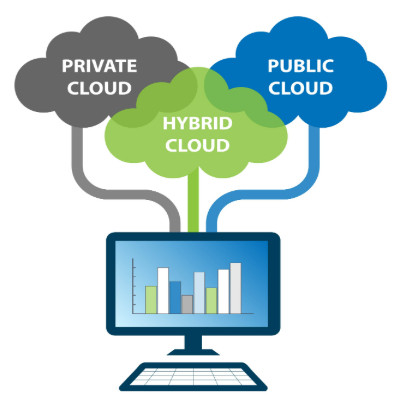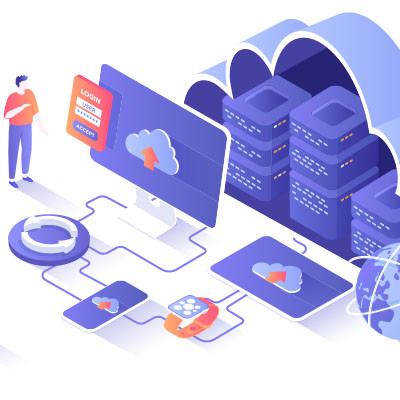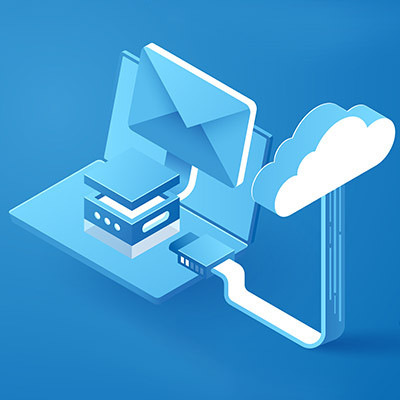We’ve all been there: frustrated by the difficulty of installing new software, dealing with licenses that suddenly expire, or constantly needing to upgrade outdated tools just to keep them running. These are classic headaches that come with buying and owning software licenses. Thankfully, there’s a much smarter way to handle things: Software as a Service, or SaaS.
PCSOFT Blog
Businesses tend to strive for agility, meaning that they want to make changes quickly and effectively as their needs change. Technology often holds them back from making these changes. You can bypass this roadblock through the MACH architecture framework, a way to build a flexible, scalable, and future-ready IT infrastructure to suit your business’ needs.
One of the most significant advantages of operating as a small or medium-sized business is that you can provide more personalized attention to your customers, unlike larger enterprises and corporations. However, you need the right tools to make these interactions as effective as possible. With the right customer relationship management tool, or CRM, your business can dramatically improve sales, marketing efforts, and customer satisfaction.
Your Point of Sale (POS) system is the backbone of your business, handling transactions, tracking sales, and keeping everything running smoothly. But like any technology, it can become outdated or start causing headaches. If you’re wondering whether it’s time for an upgrade, here are five major signs to look out for.
How much does your business currently rely on the cloud? There are loads of ways to use it, but the best way is to find what works for your business, then double down on it according to your company’s specific needs. We’re looking at how the type of cloud can impact the way your business uses this flexible asset.
Cloud computing is one of the most powerful technologies that has emerged over the past few decades. It has shifted how individuals and companies access resources, manage data, and store information. With the opportunities to scale online vastly expanding, businesses that want to make the most of their technology can turn to the cloud to save money and improve operations.
The cloud is undeniably useful for most individuals and businesses, and its increasing use in business situations shows this. However, this doesn’t mean that it is the be-all and end-all for businesses. In this month’s newsletter, we thought we’d discuss some of the pros and cons of using cloud platforms inside a small business setting.
Businesses have done incredible things with the cloud, regardless of their chosen industries, sizes, and scopes. In particular, they have innovated to create opportunities for scaling growth and operations. How can your organization do the same? We want to help you implement a cloud solution that addresses all of your pain points. To do this, you can start by learning more about the differences between the public, private, and hybrid cloud solutions available to you.
The cloud is a remarkable innovation that can enable businesses of all industries and sizes to revolutionize their operations. Have you considered the cloud for some of your business’ infrastructure? If not, you could be missing out on serious operational benefits that could push your company even further. Here are four of the best benefits of cloud computing that we can think of for a modern business.
A few… Well, more than a few years ago, when cloud computing exploded, it was one of the most exciting new ways to manage, distribute, and store digital information. Like most technological trends, it’s hard to pinpoint an exact date when the cloud became a thing, but generally the term started getting thrown around in the late 90s when some software platforms started using the Internet to host applications and information. In 1999, Salesforce was perhaps one of the most popular cloud-based platforms, offering a hosted version of their software that was available “on-demand” for businesses with a licensed subscription.
Nowadays, businesses are turning to the cloud to help resolve more and more of their daily challenges, and for good reason—generally speaking, the cloud can handle most everything thrown at it. However, are we becoming too reliant on cloud services? Let’s try to strike a balance between the pros and cons of the cloud and our dependence on it today.
Virtualizing your business’ software is pretty much just keeping it in an online environment, as compared to your own network infrastructure. This means that it lives in the cloud, delivered to you through the Internet. This approach has proved fortuitous for a great many businesses, so it only stands to reason that virtualizing hardware is a reasonable next step.
How much time does your business invest in software and its management? There are some that you can’t really go without, like email solutions and productivity suites, but you might have other specialized software that also requires attention. When you acquire new software, you can either go the traditional route or you can go the Software-as-a-Service route. Which path is the best choice for your business?
If you have the money, purchasing your own computing infrastructure isn’t an issue. Unfortunately, these systems cost tens of thousands of dollars and that is before you start compiling workstations. This week, we’d like to discuss the pros and cons of incorporating some cloud computing resources into your network infrastructure and if they can save you money.
Let’s face it… “government” and “innovation” aren’t usually associated with one another. Despite the finances that these organizations have, these funds are generally spoken for (on top of not always being used as efficiently as they could be). However, some government operations have started embracing cloud services, which has led to benefits for their entire communities.
How often do you look at your email solution and think, “Wow, managing this thing takes up so much of our time. What would it be like to take that time and apply it elsewhere?” Today, businesses have all kinds of options for managing their email communications, one of which is email hosting provided through a managed service provider.
Relying on remote workers was always scary for a lot of businesses; particularly small businesses. The fear stems from a lack of control, whether it be monitoring security or productivity. This is why, before the pandemic, you saw a lot of businesses limit or disallow the practice completely. Today, however, most organizations have a completely different view of remote work. It literally saved many businesses.
Data backup is one part of running a business that nobody wants to think about, but it’s something that must be considered should anything ever happen to your company’s data. In a world where disasters are so unpredictable and devastating, you can never know when one will strike, so you must take preventative measures now so that you are not caught unawares. Let’s go over one of the best ways you can get ready for these disasters: cloud-based automatic data backups.
Believe it or not, there was a time when a technology as prevalent as the landline was an exciting new solution for businesses, but that time has long since passed. These days, there are better options available for your communications needs. In fact, these modern tools might just be powerful enough to convince you to ditch your landline entirely in favor of them!





















